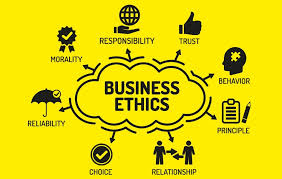
Business Ethics and Compliance
Business ethics is a form of applied ethics or professional ethics that examines ethical principles and moral or ethical problems that arise in a business environment. It applies to all aspects of business conduct and is relevant to the conduct of individuals and entire organizations.
Compliance refers to the act of adhering to laws, regulations, and internal policies. It involves understanding and following legal and ethical standards, as well as internal company policies and procedures.
Key Areas of Business Ethics and Compliance:
- Ethical Leadership: Setting a strong ethical tone and leading by example.
- Corporate Social Responsibility (CSR): Considering the social and environmental impact of business decisions.
- Conflict of Interest: Avoiding situations where personal interests conflict with professional responsibilities.
- Bribery and Corruption: Adhering to anti-bribery and anti-corruption laws and regulations.
- Data Privacy and Security: Protecting sensitive customer and employee data.
- Intellectual Property: Respecting intellectual property rights, such as patents, trademarks, and copyrights.
- Fair Competition: Avoiding anti-competitive practices, such as price-fixing and collusion.
- Environmental Sustainability: Minimizing the environmental impact of business operations.
Benefits of Strong Business Ethics and Compliance:
- Enhanced Reputation: Building trust with customers, employees, and investors.
- Reduced Risk: Minimizing the risk of legal and financial penalties.
- Improved Decision-Making: Promoting ethical and responsible decision-making.
- Increased Employee Morale: Fostering a positive and ethical work environment.
- Long-Term Sustainability: Ensuring the long-term viability of the business.
By prioritizing business ethics and compliance, organizations can create a positive impact on society, build strong relationships with stakeholders, and achieve sustainable growth.








